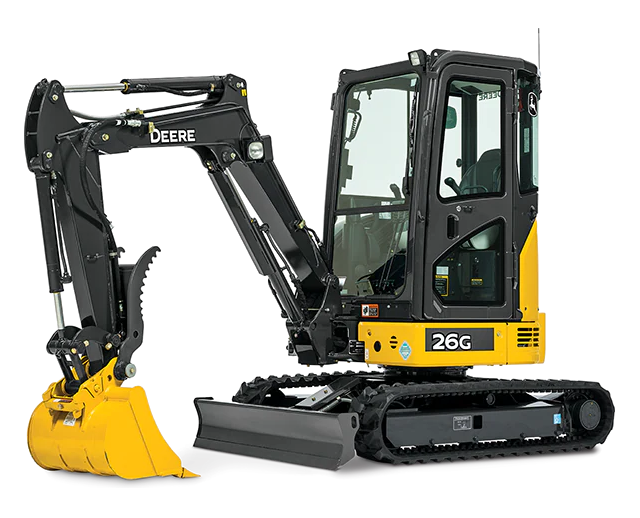Optimize Your Spending Plan by Recognizing the Expenses Linked With Construction Equipment Leasings
Understanding the complete extent of prices associated with building tools leasings is critical for optimizing your budget plan. While the preliminary rental fee might appear straightforward, countless extra expenses-- such as transport, gas surcharges, and upkeep-- can swiftly accumulate, influencing your financial preparation. Being conscious of numerous costs and the ins and outs of rental agreements can assist stay clear of unexpected monetary burdens. What strategies can be utilized to properly manage these expenses and make sure a more reliable rental experience?
Introduction of Rental Prices
When thinking about construction devices rentals, comprehending the associated expenses is critical for reliable budgeting and job planning. Rental prices can vary dramatically based on numerous factors, consisting of tools type, period of rental, and place. The first rental cost commonly reflects the equipment's market need and its associated operational capacities, influencing the general expenditure.
Along with the base rental price, secondary expenses might arise, such as transportation costs, gas surcharges, and upkeep costs. It is necessary to account for these additional costs to properly evaluate the complete price of renting devices. The rental duration can affect prices; longer leasings might certify for reduced prices, while temporary rentals might incur higher everyday charges.

Breakdown of Rental Rates
An extensive understanding of rental rates is essential for contractors and task supervisors aiming to optimize their spending plans. Rental rates for building equipment typically are composed of several parts, consisting of base rates, time-based costs, and use costs.
Base prices are the core charges related to the service of the devices, frequently established by the kind and size of the machinery. These prices can vary significantly, affected by aspects such as devices need, accessibility, and regional market patterns. Time-based charges, which might be daily, weekly, or monthly, offer to fit different task timelines and rental periods.
Additionally, rental prices may consist of usage fees, which apply when tools is used beyond a defined limit, guaranteeing that the rental firm can account for wear and tear. Seasonal demand variations can also influence rental rates, with peak construction seasons usually regulating higher rates.
Furthermore, recognizing the rental company's plans regarding upkeep and insurance policy can offer more understanding right into the total cost framework. By assessing these components, service providers can make enlightened decisions, making certain the selection of rental devices straightens with both task needs and budget plan restrictions.
Additional Fees to Consider
Comprehending the ins and outs of extra charges is vital for specialists to handle their general rental costs successfully. Past the common rental prices, different additional charges can considerably impact the total cost of equipment service. These fees frequently consist of delivery and pickup charges, which can differ based on distance and logistics included in transferring the equipment to and from the work site.
Moreover, some rental business might enforce fuel surcharges if the devices is returned with much less gas than when rented. It is likewise important to know potential cleaning charges, specifically for specialized devices that calls for complete upkeep after use.

Completely reviewing the rental arrangement and clarifying these extra fees upfront can help service providers prevent unforeseen expenses and make certain that budget plans remain undamaged throughout the project lifecycle.
Repair And Maintenance Expenditures
Routine upkeep and fixing expenses are commonly neglected aspects that can significantly affect the general expense of building and construction tools leasings. When renting out devices, it is vital to consider not just the rental fees yet additionally the possible prices connected with maintaining the equipment in optimal operating problem.
Numerous rental firms consist of standard maintenance as component of the rental arrangement; however, more comprehensive repair services or unanticipated malfunctions can Home Page result in added expenditures. It's important to examine the rental contract very carefully to understand what upkeep solutions are covered and what responsibilities drop on the renter.
Furthermore, equipment that is not properly maintained can cause inefficiencies on duty website, possibly triggering hold-ups and increasing job costs. To minimize these dangers, it is a good idea to perform regular evaluations and keep open communication with the rental company regarding any kind of issues that develop throughout usage.
Insurance Coverage and Responsibility Prices
Insurance and obligation expenses are essential components that can substantially affect the general expense of building and construction devices leasings (equipment rental company). These prices make sure that both the rental firm and the customer are shielded from prospective economic losses occurring from crashes, damages, or theft throughout the rental period

In addition, clients need to recognize any deductibles or exemptions in the insurance policy, as these can impact prospective out-of-pocket expenses. Understanding the terms of any kind of insurance policy coverage is essential to avoid unexpected expenses. Ultimately, budgeting for insurance coverage and responsibility expenditures can help ensure a smoother rental experience and protect versus financial risks related to construction jobs.
Verdict
In conclusion, a comprehensive understanding of the expenses associated with construction devices services is important for reliable spending plan monitoring. Inevitably, notified decision-making regarding tools leasings adds to the general success of building endeavors.
Rental costs can vary dramatically based on a number of elements, including tools kind, period of leasing, and place (forklift rental). The rental period can influence rates; longer services may certify for discounted prices, while short-term services might sustain greater daily costs
By carrying out comprehensive research study and engaging with reliable rental business, contractors can properly navigate the intricacies of rental pricing, eventually optimizing their monetary sources.
Beyond the common rental rates, different supplementary fees can dramatically affect the complete cost of devices service. Rental companies typically provide responsibility insurance that covers injuries to third celebrations or damages to home, while tools damages insurance can cover the expense of repairs or replacement if the leased devices is harmed.